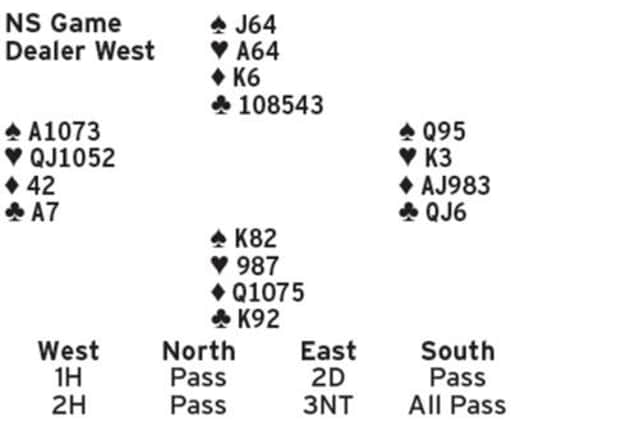Bridge - The Scotsman 11/06/13


This speeds up play and reduces instances of major bidding misunderstanding, but it has failed to improve the rather woeful standard of defence.
This deal featured a third hand play problem. South, on lead against 3NT, had heard his right-hand opponent bid his main suit, so started with the two of spades. Declarer played low from dummy – which card should North play? An unthinking Third Hand High Jack is right only if partner has led low from KQxx, in which case declarer has bid 3NT with two small spades, unlikely on this auction. If declarer has a spade honour playing the jack can never gain. Suppose declarer has K9: he wins the jack with the king and finesses the ten next time, making the same three tricks as when you play low. On the actual layout, when declarer has Q9, sacrificing the jack allowed declarer to make four spade tricks: he won the jack with the queen, then ran the nine. Withholding the jack gives him a cheap trick with the nine, but guarantees one spade trick for the defence.
Advertisement
Hide AdAdvertisement
Hide AdWhen North played the six, declarer won the nine and knocked out the ace of hearts. John Matheson won and switched cleverly to a low diamond for the nine and ten. Declarer won the diamond return with the ace, then conceded a spade to the wrong hand, allowing South to cash the queen of diamonds and hold her to nine tricks.